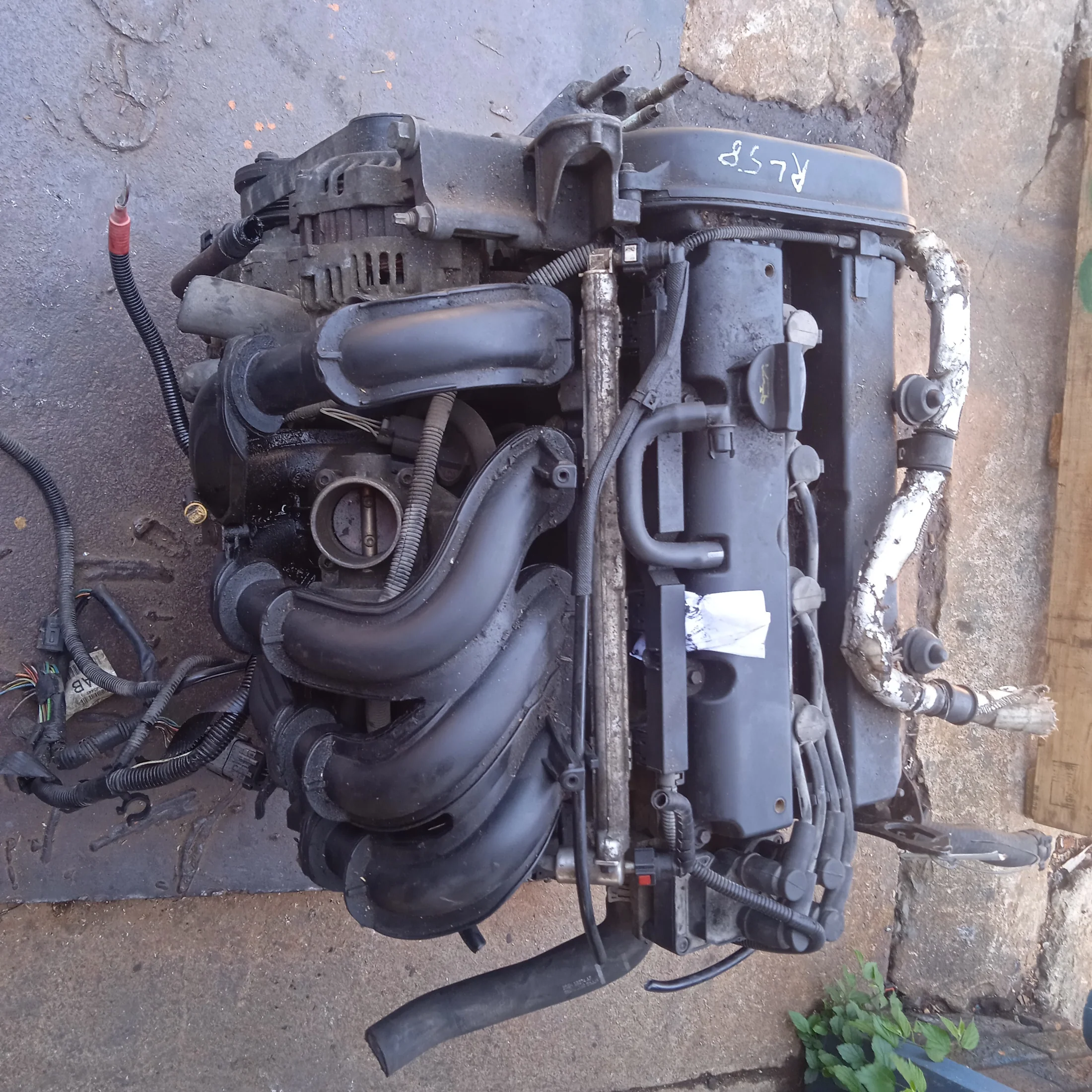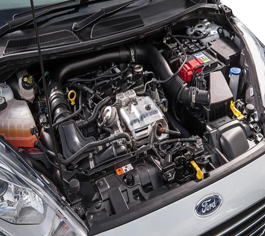The Role of a Quality Ford Fiesta Engine in Vehicle Performance
The Role of a Quality Ford Fiesta Engine in Vehicle Performance
Blog Article
The Future of Engines: Advancements Driving Sustainable Power Solutions
As the vehicle market navigates the important transition in the direction of sustainability, the future of engines is significantly specified by groundbreaking innovations. Electric engine improvements, together with appealing advancements in hydrogen fuel cells and biofuels, are improving the landscape of power services. The emergence of hybrid systems better complicates this advancement, presenting both opportunities and challenges to decrease exhausts effectively. Coupled with the assimilation of expert system in engine design, these technological strides raise essential inquiries concerning their long-term feasibility and effect on traditional paradigms. What might this mean for the sector and customers alike?
Electric Engine Developments
The development of electric engine advancements signifies a crucial shift in the aerospace and automobile sectors, driven by the urgent requirement for sustainable options to nonrenewable fuel sources. This transition is identified by considerable advancements in battery technology, power electronics, and electric motor design, which collectively boost the effectiveness and performance of electrical engines.
Current innovations have actually brought about the development of lighter, extra energy-dense batteries, such as lithium-silicon and solid-state batteries, which assure longer ranges and much shorter charging times. In addition, renovations in electrical motor performance, such as using irreversible magnets and progressed cooling down systems, enable electric engines to run properly under differing conditions. These enhancements not only enhance automobile performance yet also add to a decrease in general energy usage.
In addition, the assimilation of advanced software program formulas has maximized power monitoring in electrical lorries, enabling regenerative stopping and anticipating charging approaches. As makers significantly accept electrical propulsion, the auto and aerospace fields are experiencing a standard shift in the direction of greener innovations. This evolution not only fulfills governing demands but also lines up with customer choices for environmentally pleasant transportation solutions, strengthening electrical engines as a cornerstone of future lasting mobility.
Developments in Biofuels
As the aerospace and auto markets progressively focus on sustainable power sources, improvements in biofuels arise as a corresponding service to electrical engines. Biofuels, stemmed from organic products such as crops, waste, and algae, present an ingenious opportunity for minimizing greenhouse gas exhausts and reliance on fossil gas.
Current research has actually concentrated on improving the effectiveness and sustainability of biofuel manufacturing. Second-generation biofuels make use of non-food feedstocks, minimizing competitors with food supply and minimizing environmental impact. Furthermore, advancements in synthetic biology have actually allowed the design of microbes to generate biofuels much more efficiently, bring about higher returns and lower manufacturing costs.
Furthermore, the growth of drop-in biofuels allows for smooth integration right into existing framework, making it possible for a smoother change for sectors generally depending on nonrenewable fuel sources. ford fiesta engine. These fuels can be used in existing engines without adjustments, promoting their adoption throughout numerous sectors
Investments in biofuel technology, together with supportive policies, are necessary to drive technology and scalability. As the international neighborhood seeks to deal with environment change, biofuels use a pragmatic, immediate solution that aligns with the overarching objective of sustainability in transportation and air travel.
Hydrogen Fuel Cell Modern Technology
A growing variety of companies and scientists are checking out hydrogen fuel cell technology as a feasible choice to traditional power sources in transport and power systems. This innovation converts chemical energy from hydrogen right into power via an electrochemical response, with water as the only result, making it an eco-friendly choice.
The core of hydrogen fuel cells is the fuel cell stack, where hydrogen molecules are split right into electrons and protons. The circulation of electrons creates electrical energy, while protons relocate via a membrane to combine with oxygen from the air, creating water. This procedure leads to high efficiency and reduced emissions, placing hydrogen gas cells as an essential player in the change to sustainable energy.
Significant innovations have been made in enhancing the durability and efficiency of gas cells, along with minimizing costs through ingenious manufacturing techniques. In addition, the growth of hydrogen manufacturing methods, such as electrolysis powered by eco-friendly energy resources, boosts the sustainability of the general system. As infrastructure for hydrogen refueling expands and production approaches end up being extra efficient, hydrogen fuel cell modern technology holds wonderful assurance for decarbonizing different fields, including sturdy transport and stationary power generation.
Crossbreed Systems and Their Impact
Hybrid systems represent a substantial evolution in lasting engine technology, combining conventional inner combustion engines with electric propulsion to maximize energy performance and minimize emissions (ford fiesta engine). This twin technique allows automobiles to utilize both source of power, enabling greater versatility in energy usage and decreasing dependence on fossil fuels

In addition to ecological benefits, crossbreed systems offer customers a feasible change in the direction of totally electrical automobiles. They alleviate range stress and anxiety by combining the ease of fuel with the benefits of electrical propulsion, making them an appealing choice for a bigger target market.
The Role of AI in Engine Layout
Leveraging innovative formulas and device discovering techniques, the automotive market is progressively integrating expert system (AI) right into engine layout procedures. AI improves the efficiency and performance of style by examining vast datasets to recognize optimum setups and performance specifications. This capacity permits engineers to mimic numerous operating conditions and predict engine behavior under multiple circumstances, dramatically reducing the moment and expense related to typical prototyping approaches.
Additionally, AI facilitates the growth of sophisticated materials and burning processes customized for sustainability. By optimizing gas performance blog here and lessening discharges, AI-driven designs align with international efforts intended at reducing the carbon footprint of vehicle engines. Artificial intelligence formulas can additionally anticipate maintenance needs, causing boosted reliability and durability of engine components.
In Addition, AI is crucial in the integration of electrification technologies, such as hybrid systems, where it can maximize battery administration and power recovery processes. As the sector relocates towards more sustainable power remedies, the duty of AI in engine design ends up being progressively vital, driving advancement and enhancing the efficiency of future engines. Eventually, the cooperation in between AI and engine layout heralds a new era of smarter, cleaner, and extra reliable automobile technologies.

Verdict
In verdict, the future of engines is being formed by a convergence of cutting-edge technologies that prioritize sustainability. Electric engine developments, biofuel advancements, hydrogen go right here fuel cells, and hybrid systems jointly contribute to a significant decrease in exhausts and ecological impact. Additionally, the integration of synthetic intelligence in engine style enhances performance and performance. These transformative remedies underscore a dedication to producing a cleaner, much more lasting auto landscape, eventually profiting both society and the atmosphere.
Electric engine advancements, along with encouraging developments in hydrogen gas cells and biofuels, are reshaping the landscape of power remedies. Furthermore, improvements in electric motor effectiveness, such as the usage of permanent magnets and progressed cooling down systems, allow electrical engines to run effectively under varying problems. By optimizing fuel effectiveness and minimizing exhausts, AI-driven layouts line up with worldwide initiatives aimed at reducing the carbon impact of automobile engines. As the industry moves towards more lasting power services, the role of AI in engine design becomes progressively crucial, driving advancement and boosting the efficiency of future engines. Electric engine advancements, biofuel advancements, hydrogen gas cells, and hybrid systems jointly contribute to a significant reduction in click reference discharges and ecological effect.
Report this page